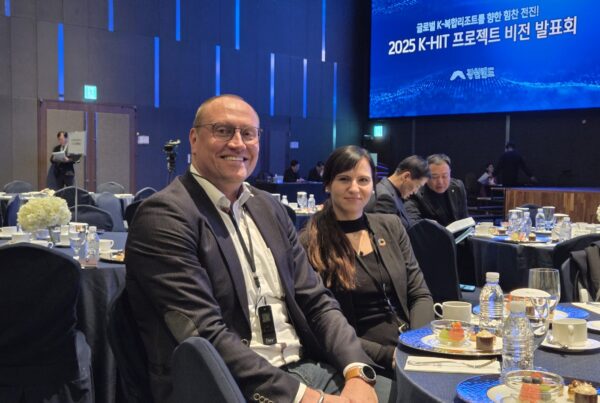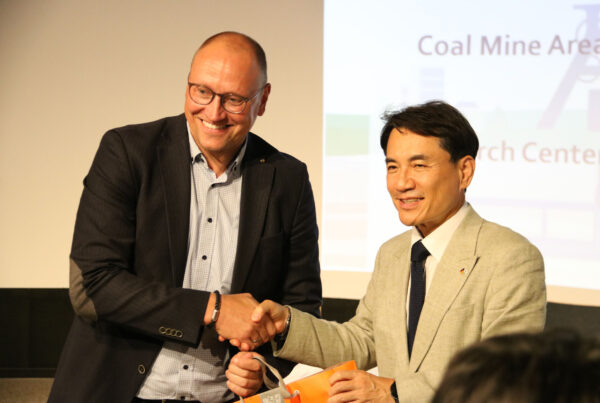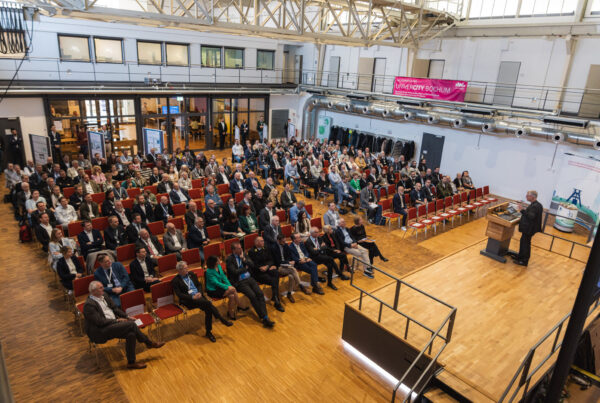The City of Herne, the RAG-Stiftung and the Technische Hochschule Georg Agricola University (THGA) provided information on the ideas and prospects for the Research Center of Post-Mining at Herne City Hall on Friday, April 16, 2021. The three partners aim to bring the internationally established scientific institution to Herne.
To this end, a funding application is being launched to acquire funds from the 5-location program, i.e. “5-Standorte-Programm” in German. To open up prospects for structural change in the communities particularly affected by the coal phase-out, the German government will support five cities that were formerly coal-fired power plant sites until 2038 with a maximum of 662 million euros. Herne is one of the cities eligible for the additional funding. Other cities are Gelsenkirchen, Duisburg, Hamm, and the district of Unna. The program implementation and the funding commitments are made by the state of North Rhine-Westphalia. A strategic advisory board and a structural strengthening council evaluate corresponding proposals.
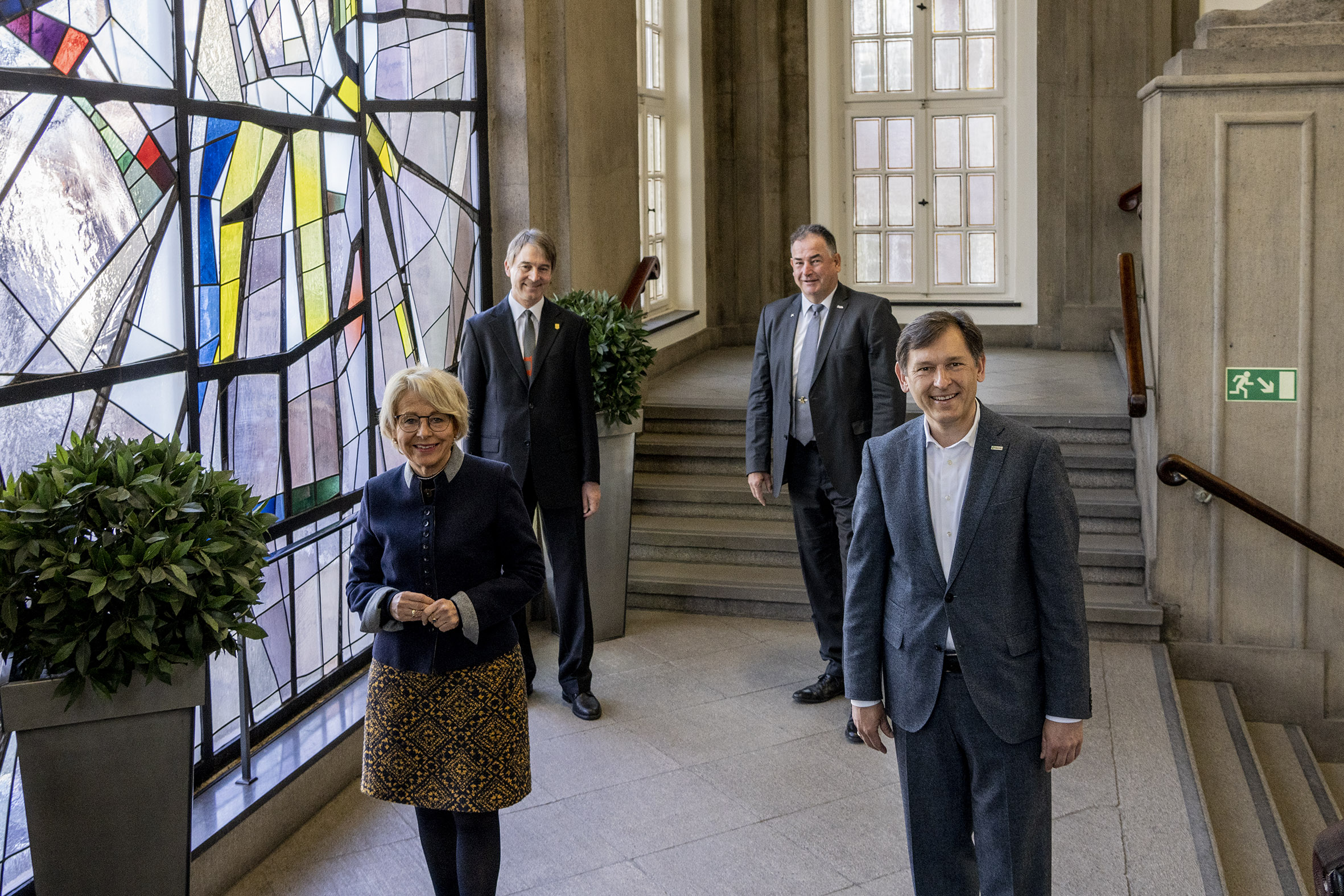
Proponents of the joint project outline (from left to right): Bärbel Bergerhoff-Wodopia from the board of the RAG-Stiftung, THGA President Prof. Dr. Jürgen Kretschmann, Prof. Dr. Ulrich Paschedag, head of the Research Center of Post-Mining, and Herne Mayor Dr. Frank Dudda. ©Frank Dieper/City of Herne
For the city of Herne, the establishment of the academic institute would offer great opportunities to further advance the ongoing future-oriented restructuring process of the city. The intended settlement of the Research Center in the "Funkenberg Quartier" near Herne's central station plays a significant role in strengthening the local labor market and the regional science location. "With the settlement of the Research Center of Post-Mining, we in Herne can establish new perspectives for cutting-edge research in the heart of the Ruhr Area and take a big step for our future urban development," says Lord Mayor Dr. Frank Dudda, describing the importance of these concrete plans for the entire city and the Ruhr Area. Together with the Urban Art Center Ruhr, which is to be built in the center of the district Wanne, and another scientific facility, which the city would like to present in the coming week, there are promising perspectives with regional impact for Herne, which could be implemented promptly within the framework of the 5-location program. "We have very strong and reliable partners by our side with the Research Center of Post-Mining, and we are extremely grateful to the THGA and the RAG-Stiftung for this," explains Dr. Dudda.
In 2015, the Research Center of Post-Mining was initiated jointly by the RAG-Stiftung and the THGA. "Through our financial support of the Research Center of Post-Mining in the recent years, we have done essential development work and we will continue to be a reliable partner of the THGA and the Research Center in the future. Nevertheless, it is time to spread the commitment to the Research Center over multiple strong shoulders," emphasized Bärbel Bergerhoff-Wodopia, member of the board of the RAG-Stiftung and chairperson of the University Council of the THGA. "That is why we are working together with the city of Herne to ensure that the Research Center of Post-Mining receives the funding it needs. Furthermore, we also use this possibility to support the successful transformation of our region" said Bergerhoff-Wodopia.
Mining has an impact. To deal with that impact responsibly is a major challenge not only in Germany but also throughout the world. Since its foundation, the Research Center of Post-Mining has been pooling the necessary expertise to shape the technical, economic and environmental consequences of mining. By conducting interdisciplinary research, the scientists investigate the complex tasks surrounding mine closure and their subsequent use – and above all focus on the potential for the future. The Research Center of Post-Mining is thus unique in the world. To date, the integrative approach has resulted in four research areas: Perpetual tasks and mine water management, geomonitoring in post-mining, material sciences for the preservation of industrial heritage, and reactivation and transition.
At the same time, the Research Center itself is becoming more complex and is constantly growing with its tasks: As a forward-looking institution for people, nature, and the environment in former mining regions, it intends to evolve into the German Research Center of Post-Mining in the future. "We investigate the consequences of mining in all of its aspects. We want to expand our reputation and our research fields in the coming years and be the most competent point of contact for all scientific and social questions about post-mining," explains Prof. Dr. Ulrich Paschedag, head of the Research Center.
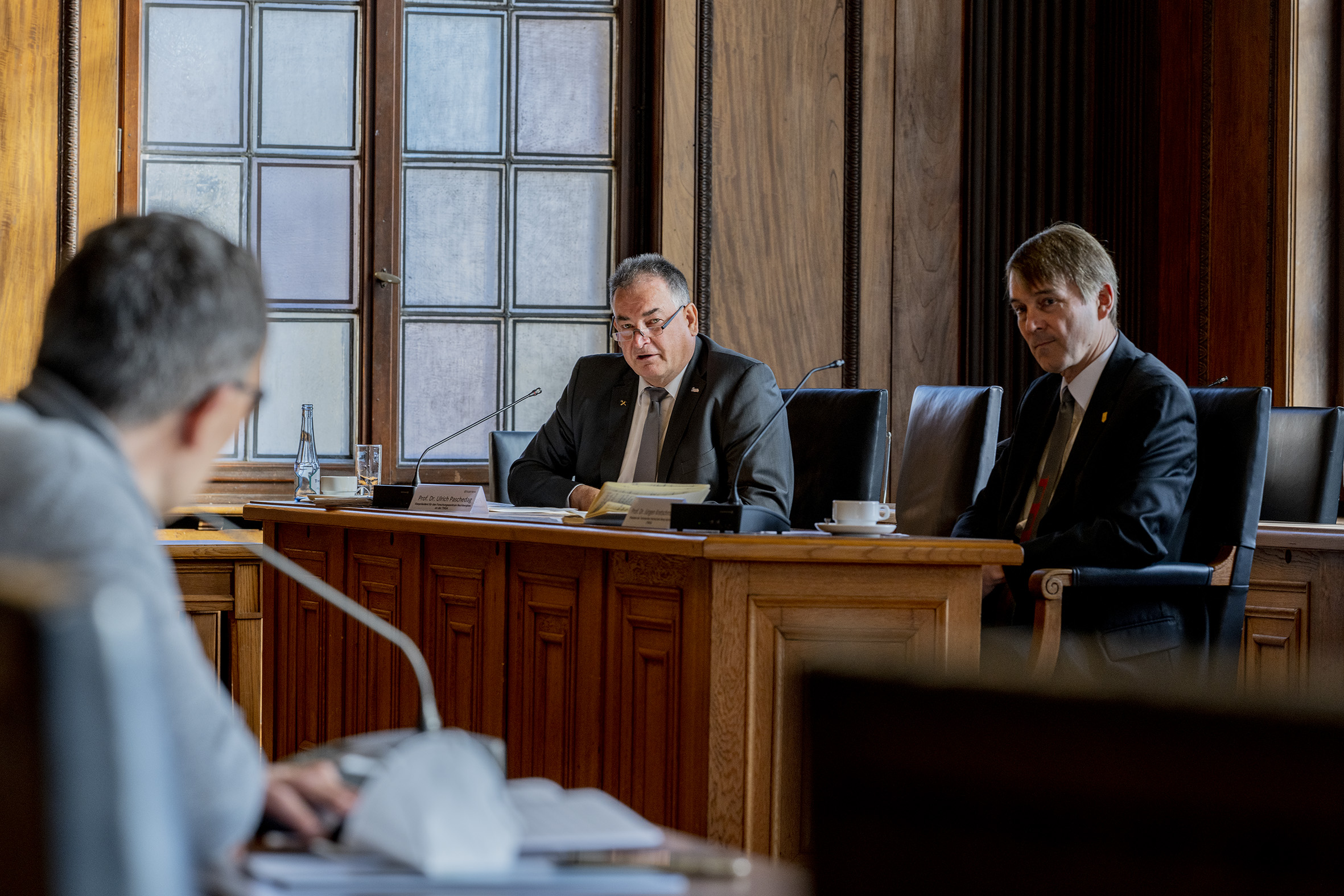
Prof. Dr. Paschedag and Prof. Dr. Kretschmann see new perspectives at a new location: In Herne, the scientific institution could be expanded to become the German Post-Mining Research Center.
A new location in Herne opens up completely new perspectives for the further development towards the German Research Center of Post-Mining, explains THGA President Prof. Dr. Jürgen Kretschmann: "Unfortunately, the spatial capacities in our historic university building in Bochum are very limited. With a new building in Herne, we would have the possibility to set up world-class laboratories and expand our research activities." In addition, a suitable number of offices, seminar rooms, a library, and an archive are being planned. From around 2025, 60-80 scientists would thus be able to work on all questions of post-mining centrally in one place, making a significant contribution to the urban and regional development and transfer these topics to society. "Nevertheless, the German Research Center of Post-Mining will of course remain linked to the THGA in Bochum," says Prof. Kretschmann. He expects that the master's degree program in "Geoengineering and Post-Mining" also is set to benefit in a special way from the new equipment. This unique master's degree trains experts at the interface between mining, surveying, and geotechnics. They are familiar with the securing and rehabilitation measures necessitated by raw material extraction and are in high demand on the job market.
"In the new special laboratories, our students and young scientists would have the opportunity to carry out their project work and investigations in an excellently equipped environment," says Prof. Kretschmann. "Notably, they are only a subway ride away from the THGA. Without changing trains." At the same time, the findings of the Research Center can be incorporated even more directly into the degree program and the doctoral seminars, so that graduates and doctoral candidates are always familiar with the latest developments in post-mining research, says Kretschmann. "This is unbeatable knowledge – also internationally."
Editors: Carmen Tomlik


